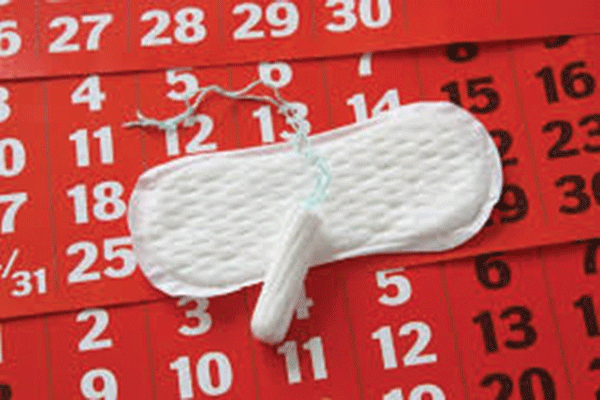
Ropa shifts again and clamps down the wave of pain that washes over her lower abdomen. As her body prepares for another onslaught, she tries hard to focus on her presentation, which she will make in the next five minutes.
By Phyllis Mbanje

For years, she has kept her “secret” afraid that the largely male-dominated marketing agency would lose its confidence in her and brand her a weakling. So every month, she suffers alone and the only time she allows herself to show her “weakness” is when she rushes to the bathroom.
In the cold impersonal white cubicle, she crawls into a corner and stays prostate until the pain has eased.
Ropa is not alone as nearly 75 % of women worldwide suffer from severe period pain (dysmenorrhea). The condition, which can cause a significant impairment in their quality of life and daily functions, however, remains a taboo subject.
Women activists and human rights defenders have repeatedly called on societies to break down global taboos around menstruation (a natural bodily function), and discuss pertinent issues like period pain.
Zimbabwe is also among countries in the developing world in which the subject is not adequately discussed based on cultural perceptions that view it as shameful and dirty.
Despite the fact that menstruation is a healthy biological process, in many places all over the world, it is approached with hesitancy and misinformation because of deeply-rooted cultural taboos.
- Chamisa under fire over US$120K donation
- Mavhunga puts DeMbare into Chibuku quarterfinals
- Pension funds bet on Cabora Bassa oilfields
- Councils defy govt fire tender directive
Keep Reading
The silence around menstruation limits women’s and adolescent girls’ access to relevant and important information about their bodies, directly affecting their health, education and human rights.
There is not a lot of information surrounding critical subjects like dysmenorrhea and yet it affects many women, whose quality of life is drastically impaired including the performance of their duties to capacity.
Recently, Zambia’s provision for menstrual leave touched off a storm, with many people shooting it down and dismissing it as a frivolity.
Zambian women will now be able to take a day off during their period dubbed “Mother’s Day”.
However, the right, which is enshrined in the country’s labour laws, is only entitled for those who are ill.
Scientifically known as dysmenorrhea, period pains are characterised by cramping lower abdominal pain.
Nearly 75% of women worldwide suffer from the condition, according to a 2012 article published in the British Journal of Clinical Pharmacology.
During ovulation a hormone called prostaglandin, known to cause cramping abdominal pains, is released and affected women “experience mainly lower back pain while some describe pain that goes down into their legs.”
“The pain is felt when the uterus contracts to expel the blood, it is very uncomfortable,” South African gynaecologist and obstetrician Bronwyn, Moore said.
Dysmenorrhoea can cause significant impairment in a woman’s quality of life and daily functions, The most common is called primary dysmenorrhea, which has no real known cause.
The second is caused by some underlying conditions like fibroids, cysts or previous pelvic inflammatory diseases.”
Young girls, noted Moore, are likely to get primary dysmenorrhoea, when they first start menstruating but this normally improves with age or childbirth.
“Pregnancy and delivery cause the cervix to stretch and dilate and so it’s easier for the menstrual blood to pass and the pressure in the uterus eases,” she said.
A few lifestyle changes and moderate exercises are mostly sufficient to manage the condition.
A study published in a 2012 issue of the South African Journal of Obstetrics and Gynaecology also noted that many women with primary dysmenorrhoea reported that exercise provided symptomatic relief.
“General exercising improves your blood flow, improves your ability to deal with pain, you release endorphins, which are your brain’s own morphine-like hormones to help you deal with (the) pain,” Moore said.
For severe cases, however, she said one needs to take pain medication like nonsteroidal anti-inflammatory drugs or, in worst cases, surgical intervention.The nonsteroidal drugs restrict or block the production of prostaglandins and include the common painkillers such as aspirin, naproxen, ibuprofen and mefenamic acid.
“There is also the contraceptive pill, which is used to reduce the amount or time that you bleed and makes a period less painful,” Moore said.
She said awareness of available options is critical, especially for young girls reaching puberty.
“The truth is women shouldn’t have to take two or three days off per month from their studies or from their work, there is perfectly adequate treatment available,”











